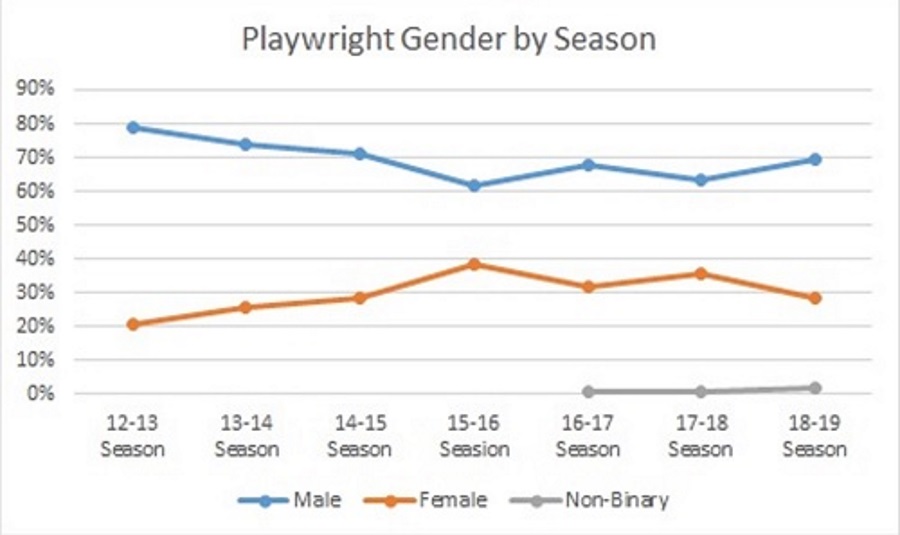WASHINGTON, D.C.: The latest edition of the DC Theatre Demographics study has been released, showing that in the 2018-19 season, white male playwrights and directors still get the majority of opportunities in the region, though directors of color are showing gains.
A local playwright, Gwydion Suilebhan, has been collecting data on the demographics of playwrights and directors getting work in the D.C. area since 2012. The latest study was completed in collaboration with another artist, Olivia Haller, and the service organization theatreWashington. The study counted 210 productions at 63 theatres that opened between Sept. 1, 2018 and Aug. 31, 2019.
The study found that 69.75 percent of playwrights produced were men, and 28.32 percent were women; there was a slight uptick in non-binary playwrights from previous years, at 1.93 percent. The study found that 71.16 playwrights produced were white and 20.84 were people of color. The data improves when the count is confined to new plays: 34.95 percent of new plays were authored by women and 44.07 percent were authored by writers of color.
The count for directors was similar, with 62.75 percent of plays directed by men, and 78.48 percent of directors identified as white. Directors of new plays, however, had demographic numbers closer to equal. In the 2018-19 season, 31.1 percent of plays produced were classified as new. According to the study, in terms of demographics in this area, there has been a “modest fluctuation” over the past five years.
In the past few years, the D.C. theatre scene has tried to address the lack of gender diversity in its programming, twice hosting the Women’s Voices Theatre Festival.
The full demographic study can be found here.


